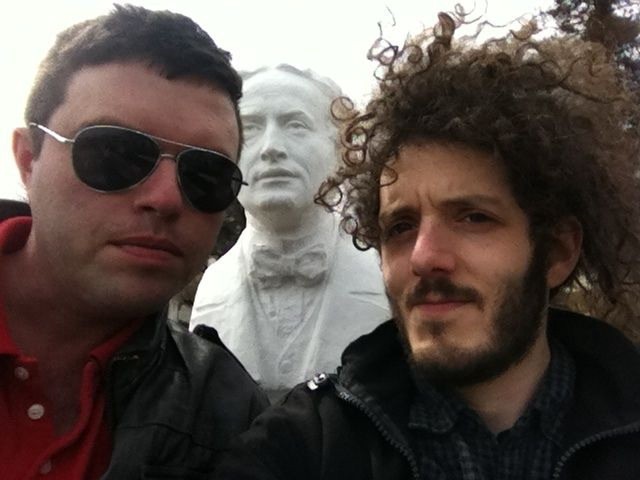Books & Culture
Review: Artful, by Ali Smith

A series of linked meditations on form, time, and art plays with the boundaries of fact and fiction
Certain writers have a particular voice — tartly observational, streetwise and academic — that makes you desperately wish you could go sink a few pints with the writer. Angela Carter was one. Ali Smith, it turns out, is another. You wouldn’t necessarily have guessed it by her fiction, but, like Carter, Smith is a dab hand with a sweeping pronouncement, opining on the eternal topics (Time, Death, Art) with one bold assertion after another without coming off as pompous.
Crammed full of playful and resonant meditations on time, form, edge, offer and reflection, Artful is a collection of four long essays taken nearly verbatim from lectures Smith delivered at Saint Anne’s College in Oxford last year. The fictional conceit presented here is that the lectures were prepared by Smith’s dead lover — who, as Smith reads through them again, shambles back from the grave to occupy the house, making demands in a nonsense language.
Smith is, perhaps, deliberately slipping forward in time; in life outside Artful, her partner (the filmmaker Sarah Woods) is still alive. But by illustrating the grief that hasn’t yet materialized in the real world, our attention is subtly directed to the fact that live partners hold death latent in their real-world forms — that everybody does, that every thing does. As the fictionalized writer attempts to decode the unintelligible requests of her returned and decidedly worse-for-wear lover, the living writer reflects on time as it is experienced in life and art.
As the chapter “On Form” unfolds, the zombie lover begins to disintegrate, demonstrating the necessity and limitations of form. “It’s the bacterial kick of life force, something growing out of nothing…form never stops.” This is an observation tangentially related to a sonnet by Edwin Morgan, but two paragraphs later it’s hard to tell if we’re still on the poem or we’ve moved along. It doesn’t matter, oddly. The ideas stand alone as much as they connect to one another. Poetry, movies, default error messages, fiction, trees, the beauty of being a really bad dancer: it’s a feminine approach, sidelong, non-linear, and concerned entirely with connectivity. It’s like a walkabout through both highbrow and lowbrow culture, a flight of fancy without being flighty, even though Smith can and does draw lines of contemplation from the Eurydice myth to Michelangelo to Werner Herzog to Beyoncé in the space of three pages.
It’s heady stuff, at times almost psychedelic (and Through the Looking Glass has a place here, of course). But Smith is not just spinning a bunch of floating threads. Fictionalized-writer Smith visits a grief counselor, who attempts to hypnotize her, but Smith, stubbornly clinging to literal-mindedness, refuses to go under. The counselor, however, manages to decode the nonsense syllables of the undead lover, because, as it turns out, it’s not imaginary at all: it’s Greek. The language of lofty thought, of philosophizing ’til the cows come home. And it’s the language spoken by Aliki Vougiouklaki, a legend in Greek cinema whose song lyrics turn out to be what the undead partner has been trying to quote. The actress, whose first name is not-coincidentally Greek for Alice, is described as “Monroe, Bardot, Loren, and both Hepburns rolled into one,” and seems like a literary flourish — until living-writer-Smith provides us with a Youtube link. Some readers might find such interplay between fact and fiction a contrivance, but this one found it a treat.
“We do treat books surprisingly lightly in contemporary culture. We’d never expect to understand a piece of music on one listen, but we tend to believe we’ve read a book after reading it just once,” Smith writes. “Books need time to dawn on us…” Artful can be read in a few sittings, but is as layered with motifs and tonal shifts as a nocturne, and deserves repeated reflection.
Recommended if you liked: Changing My Mind: Occasional Essays by Zadie Smith, Shaking a Leg by Angela Carter, The Moment Under the Moment by Russell Hoban
***
— Jenna Leigh Evans writes fiction in Brooklyn. You can find her here.









